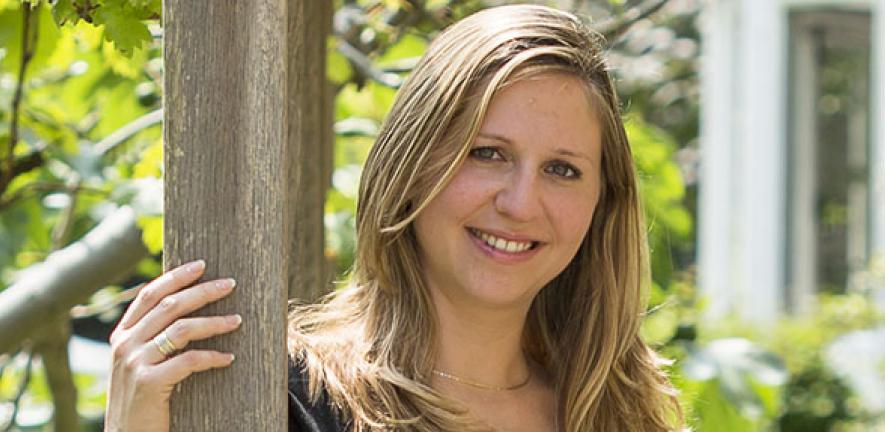
SensorHut was chosen as a finalist in the Cambridge Independent’s inaugural Entrepreneurial Science & Technology Awards. And at the awards ceremony on 21st September, the company was Highly Commended in the ‘Cleantech’ category.
SensorHut was co-founded in 2013 by postdoctoral researcher Dr Tanya Hutter, who first had the idea for developing her innovative sensor technology while studying for her PhD here in the Department of Chemistry. Now the Henslow Research Fellow at Darwin College, and a member of the multidisciplinary Elliott research group here in the Department of Chemistry, she multi-tasks, juggling work for the company around her full-time academic research.
The sensor technology that SensorHut is developing can be used to detect and monitor volatile organic compounds (VOCs) - gas molecules that are present in air, chemical processes, food and waste. Many of these can be toxic and harmful to humans and the environment. But they are widespread, used in products ranging from mattresses to furniture, solvents, paints and aerosols.
Optical gas sensors that are based on molecular spectroscopy measure molecules that are dispersed in air. The sensitivity of detection depends on the length of interaction of light with the gas molecules. The longer the path-length over which this interaction is measured, the stronger the signal. But to do that requires bulky and expensive gas flow cells. The SensorHut technology uses nanotechnology to reduce sensor size. Light is shone through an optical nano-structure that behaves like a ‘sponge’, concentrating the molecules. This can reduce the interaction path-length from several meters to one centimeter, enabling the sensors to be much smaller. And, Dr Hutter says, the SensorHut technology is also significantly more sensitive and selective to the compounds than others.
She adds: "We are working closely with Alphasense Ltd to take the technology to a commercial product. Alphasense is a leading UK gas sensor R&D and manufacturing company, also working with the Atmospheric Chemistry group, focusing on the industrial safety and air quality markets."
The work is at an early stage. “We are still in the research phase, working to understand the scientific principles,” Dr Hutter says. However, the first product using SensorHut technology could go on sale – if the testing is successful – next year.

